Drug Addiction Treatment in Wellesley
Wellesley drug rehab for in-patient and out-patient drug detox and alcohol treatment. Addiction and chemical dependency recovery program near Wellesley MA. Drug and Alcohol Rehabilitation techniques used in our Norfolk rehab and detox centers near Wellesley. Programs for drug and alcohol abuse that include inpatient and outpatient recovery for addiction are explained as well as the benefits and drawbacks of both. Many health insurance providers will pay for alcohol and drug rehab. Call us to find out what options are available for you.
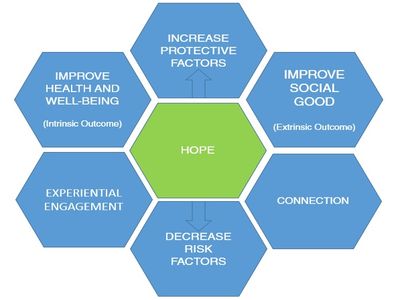
Mental Dependency – What Is Psychological Dependency?
The term psychology is normally implied to refer to behavior procedures that associate to the feelings or the mind. The term emotional reliance is typically implied to describe the psychological as well as mental procedures that are associated with the growth of, and also recovery from, a material use disorder or drug addiction.
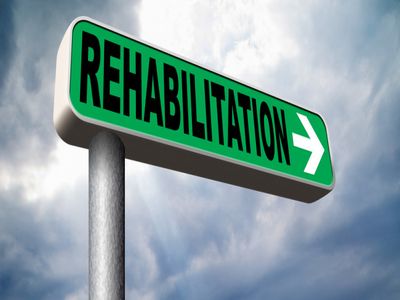
Compounds related to Mental Dependency
The basic monitoring here is that compounds of misuse are related to both emotional and also physical aspects of reliance; nonetheless, numerous sources divide the elements of the advancement of a material usage condition and the withdrawal procedure into compounds that are associated with withdrawal signs and symptoms that are largely mental in nature. Usually, these compounds consist of:
Most uppers, consisting of cocaine as well as Ritalin
Most hallucinogenic medicines, such as LSD
Cannabis products (although there is mounting proof that there could be a substantial physical procedure of withdrawal that happens in persistent customers of cannabis products).
Many inhalant products.
Numerous psychotropic drugs, such as antidepressant medicines.
Reward of emotional reliance
One very important distinction that can be made regarding the difference in between medicines that are considered to lead to physical versus mental dependence is that the withdrawal process from some of the drugs that are thought about to be strong prospects for physical dependence, such as alcohol, benzodiazepines, and barbiturates, can lead to the growth of possibly fatal seizures. This condition does not usually take place with withdrawal from opiate medicines, which are additionally thought about to be extremely literally addicting. The recuperation procedure for people who have actually established compound use conditions to these substances need to be purely checked by a medical professional or psychiatrist who specializes in addiction medication to determine any kind of possible seizure activity and quickly resolve it.
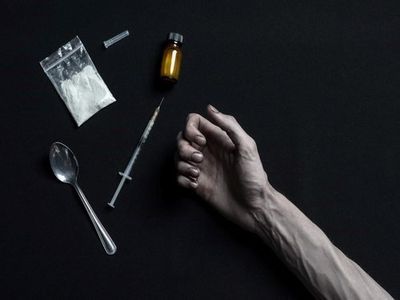
Options for Treatment in Wellesley
Drugs
Numerous medications have actually been located to be effective in dealing with dependency to opioids, alcohol, or pure nicotine in adults, although none of these drugs have actually been approved by the FDA to treat teenagers. Only initial evidence exists for the efficiency and security of these medications in individuals under 18, and also there is no proof on the neurobiological effect of these medications on the creating brain. In spite of the relative lack of evidence, some wellness treatment providers do use drugs “off-label” when treating teenagers (specifically older adolescents) who are addicted to opioids, nicotine, or (much less generally) alcohol. Newer substances remain to be examined for possibly dealing with material use problems in adults and teenagers, yet none aside from those provided right here have actually revealed conclusive results.
Note that there are currently no FDA-approved drugs to deal with addiction to cannabis, cocaine, or methamphetamine in any age.
Buprenorphine reduces or eliminates opioid withdrawal signs and symptoms, consisting of medication desires, without creating the “high” or harmful negative effects of heroin as well as other opioids. It does this by both triggering and also blocking opioid receptors in the brain (i.e., it is exactly what is known as a partial opioid agonist).

Methadone likewise avoids withdrawal signs as well as lowers desire in opioid-addicted people by turning on opioid receptors in the mind (i.e., a complete opioid agonist). It has a lengthy history of use in therapy of opioid dependency in adults as well as is readily available in specially certified methadone treatment programs. In select situations and also in some States, opioid-dependent adolescents in between the ages of 16 and also 18 could be eligible for methadone treatment.
Residential Drug Treatment in Wellesley
A research in the journal Addiction shows that people who receive help with recovery from dependency are more likely to stay in recovery for longer periods than those who don’t get treatment. Sixty-two percent of those that had professional help in treating their dependency remained in recuperation for three years after treatment, compared with just 43 percent of those that really did not obtain therapy. Furthermore, 57 percent of those who made it 3 years were still devoid of the substance after a total amount of 16 years. This reveals that obtaining expert treatment is vital to getting to the very best result.
Residential Wellesley drug rehab particularly is usually extra valuable because it requires that the person stay in treatment for the quantity of time required to affect modification.
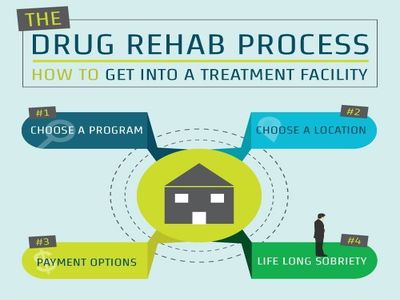
In the NIDA post it is mentioned that an important component of medication dependency treatment is remaining in therapy long enough to complete the numerous elements of the program, because this allows people to emerge with the highest degree of self-confidence in their newly found out abilities and tools for remaining in healing. As a result of this, each of the elements of a high-quality therapy program works best when it is designed to assist people make it through the whole therapy process.
Residential rehab offers 24-hour treatment in a setting where the emphasis is assisting people accomplish and maintain healing from drug addiction. As a result of this, these programs have the ability to use a breadth of solutions that are more probable to assist clients develop abilities and also tools to remain in healing well after leaving the program. These consist of:
Clinically supported detoxification as well as withdrawal, if needed.
Clinically sustained upkeep treatment, if needed.
Private therapies, such as Cognitive Behavior Modification.
Family or couples therapy.
Structure abilities and tools that are necessary for life post therapy.
Follow-up treatment after the formalized program ends.
Outpatient Rehab
Outpatient rehabilitation allows clients to live in your home and also take part in treatment at an outpatient facility during the daytime. This type of program pays for people more flexibility in treatment, providing clients the capability to keep a work and stay on par with everyday obligations at home. Those just beginning outpatient treatment could require day-to-day sessions with a therapist or clinical team, while those further along in recovery (or with much less severe dependencies) could succeed with part-time sessions once or twice per week.
Outpatient programs usually last anywhere from one to 3 months, as this is the window of time in which those in healing are most susceptible to regression. The size of time a client spends in outpatient treatment relies on their progress in recuperation, which takes into account their psychological stability and also physical wellness.
An outpatient drug rehab program provides drug and alcohol treatment sessions that can be set up throughout different times throughout the week. This timetable enables clients to proceed with their normal responsibilities and proceed living at home, however they are needed to check out treatment at their allocated times for therapy and medicines.
Healing
Healing is a goal of alcohol treatment, as well as recovery-oriented systems of care are being developed to sustain that objective. People who are “in healing” know what it indicates to them and also how vital it remains in their lives. They need no official meaning, however, for the public and also those that research study, assess, and also develop plans regarding dependency, recuperation is a principle that could occasionally seem unclear.
Essentially, recovery is a complex and also vibrant procedure incorporating all the favorable advantages to physical, psychological and social wellness that can occur when individuals with a dependency to alcohol or drugs, or their family members, get the aid they require.
Therapy
Therapy is a crucial part of substance abuse treatment for lots of people. Cognitive behavior modification, household counseling, and various other treatment techniques can help individuals recuperating from opioid addiction remain tidy.
12 Step Programs
The 12-Step viewpoint originated by Alcoholics Anonymous is utilized by concerning 74 percent of treatment. Lots of addiction therapy programs provide choices to 12-Step technique for those who favor an even more secular foundation for therapy.
SMART Recovery
SMART Healing is an abstinence-based, not-for-profit company with a practical self-help program for people having problems with alcohol consumption and utilizing. SMART Healing is not a spin-off of Alcoholics Anonymous. When you prosper at following our method, you may graduate from the program, or you could stay around to help others.
Client-centered methods
In client-centered chemical abuse treatment, you can assist determined features of your medicine addiction therapy strategy including:
- The rate at which you advance.
- The length of your remain.
- The goals of your program.
Together with professional personnel the addict figures out exactly just what they intend to get out of their keep. Each week, you as well as your individual therapist will certainly assess your medication dependency therapy and determine whether or not you are reaching your goals, failing or exceeding them and readjust your treatment plan as necessary. The partnering is truly vital here- your objectives are your roadmap with treatment.
Psychoanalysis
The psychoanalysis view recommends dependency is primarily a problem of self-regulation. Addiction is explained as a defensive strategy to stay clear of feeling of vulnerability or powerlessness. The dependency problem stops the user from recognizing about her distress, as well as the growth of psychological capacity to self-soothe.
Regression avoidance
An influential cognitive-behavioral method to addiction recovery as well as therapy has been Alan Marlatt’s (1985) Regression Avoidance strategy. Marlatt describes four psycho-social procedures relevant to the dependency and relapse procedures: self-efficacy, end result expectations, attributions of origin, and decision-making processes. Attributions of causality refer to an individual’s pattern of ideas that regression to medicine use is a result of internal, or instead outside, short-term causes (e.g., permitting oneself to make exemptions when encountered with just what are evaluated to be uncommon scenarios).
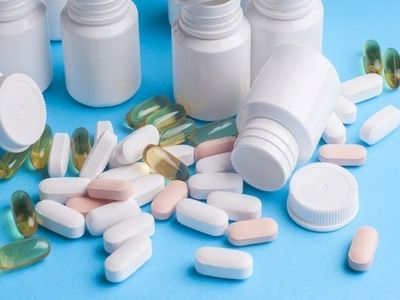
As an example: As an outcome of rush hour, a recovering alcoholic may determine one afternoon to leave the freeway as well as traveling on side roads. This will cause the development of a risky situation when he recognizes he is unintentionally driving by his old favorite bar. If this individual is able to utilize effective coping methods, such as sidetracking himself from his yearnings by switching on his favorite music, then he will avoid the relapse threat (PATH 1) and also enhance his efficacy for future abstaining. If, nonetheless, he does not have dealing devices- for instance, he could begin ruminating on his yearnings (PATH 2)- then his efficacy for abstaining will decrease, his assumptions of favorable outcomes will boost, as well as he may experience a lapse- a separated go back to compound drunkenness. Doing outcomes in just what Marlatt refers to as the Abstaining Violation Effect, characterized by sense of guilt for having gotten intoxicated and reduced efficacy for future abstaining in comparable tempting scenarios. This is an unsafe pathway, Marlatt suggests, to full-on relapse.
Dual Diagnosis and Rehab
When an individual is detected with both a substance abuse condition and a mental health and wellness problem, then it is labelled a Dual Medical diagnosis. Common psychological wellness disorders that tend to happen alongside addiction consist of:
- Anxiousness conditions.
- Moderate to extreme anxiety.
- Personality disorders.
- Mood conditions.
- Schizophrenia.
In numerous cases, signs and symptoms of the psychological health condition appear. As they come to be increasingly more overwhelming, the patient might try to “deal with” those signs and symptoms using different medicines. An individual who has a hard time with anxiety may attempt to boost their mood by taking heroin or prescription medications. Patients who are living with anxiousness might aim to soothe themselves by smoking marijuana. On the other hand, a person managing an eating condition might try to advance their weight reduction efforts by abusing stimulant medicines like drug or crystal meth.
In other cases, the medicine dependency precedes and also because of persistent substance abuse, psychological wellness problems can develop later on because of the fact that substance abuse alters brain function gradually.
Sober Living House
Sober living homes are group homes for those recouping from an addiction. The majority of these houses are independently possessed, although some group homes are possessed by services and also may also be owned by charity organizations. Houses are normally found in silent areas to help make certain a relaxed environment for individuals in very early recuperation.
These kinds of residences are different from rehabilitation facilities; rehabilitation centers normally offer an even more intensive healing experience as well as give homeowners less liberty. Individuals that live in sober living centers can usually reoccur as they please as long as they follow particular guidelines. Sober living houses might need locals to be home by a certain time or to go to function throughout the day. Homeowners might also go through routine medicine screening to show recurring sobriety.
